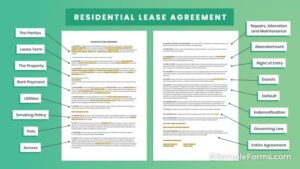Debt payoff is like a thrilling treasure hunt where the prize is a life free from the clutches of creditors! Imagine finally being able to treat yourself without worrying about those pesky bills lurking around the corner. In this adventure, we’ll dive into various strategies that turn your debt repayment process from a daunting dragon into a friendly puppy.
From the snowball method that gives you quick wins to the avalanche technique that slays high-interest monsters first, we’ll unveil the tactics that can transform your financial landscape. We’ll also explore debt management options and the impact of debt on your financial health, ensuring you’re well-equipped for the journey ahead.
Debt Payoff Strategies
When it comes to tackling debt, having a game plan is more crucial than finding an extra fry at the bottom of the bag. Two popular strategies often come up in conversations: the Snowball Method and the Avalanche Method. Both have their merits and can help clear the fog of debt, but choosing the right one can depend on your personal situation and psychological preferences.The Snowball and Avalanche methods are two contrasting approaches aimed at annihilating that pesky debt.
The Snowball method focuses on paying off the smallest debts first to build momentum, while the Avalanche method targets the highest interest rates to minimize total interest paid. Each has its own flavor and appeal, much like choosing between chocolate and vanilla ice cream—both delicious, but one may suit your taste better.
Snowball Method
The Snowball Method provides a thrilling psychological boost by eliminating smaller debts first. Imagine watching your debts disappear like socks in a dryer. Here’s how it works:
- List your debts from smallest to largest balance.
- Make minimum payments on all debts except the smallest.
- Throw every extra penny you can find at the smallest debt until it’s gone.
- Celebrate your victory (by eating cake, perhaps) and move on to the next smallest debt.
This method can cultivate motivation and a sense of achievement, making it easier to stick to your repayment plan. It’s like a game where you level up with every debt you clear, making the journey feel less daunting.
Avalanche Method
On the other hand, the Avalanche Method is all about math and saving money. It prioritizes debts based on interest rates, meaning you tackle the highest interest debt first—think of it as your financial fire extinguisher. Here’s how you can set it up:
- List your debts in order of highest to lowest interest rate.
- Make minimum payments on all debts except the one with the highest interest.
- Channel any extra funds into paying down the highest interest debt.
- Once it’s gone, move on to the next highest interest debt.
By following this method, you ultimately save more money on interest payments, allowing you to pay off your debts faster. It’s like choosing the most effective route to your destination—less time in traffic and more time enjoying your financial freedom.
Prioritizing Debts
To master your debt payoff strategy, understanding how to prioritize your debts is essential. Here are some tips on how to rank those debts like they’re competing for the top spot on a hit chart:
Identify the interest rates
Higher rates mean more money lost over time. Focus on those pesky high-interest loans first, as they can feel like they’re siphoning off your hard-earned cash.
Consider the balances
Sometimes, it’s easier to pay off smaller debts first for motivational boosts. Balance the emotional payoff with financial logic.
Assess urgency
Some debts carry more immediate consequences than others, like credit cards with looming late fees or loans affecting your credit score. Make those a priority to keep your financial health in check.By employing these strategies and tips, you can steer your ship through the stormy seas of debt more effectively, while keeping your sanity intact—because who doesn’t want to feel like a financial superhero while slaying their debts?
Understanding Debt Management Options

When it comes to tackling debt, understanding your options is like having a trusty map on a treasure hunt—without it, you might find yourself wandering aimlessly in the land of high interest rates and sleepless nights. Fear not, brave financial adventurer! Here, we’ll unveil the magical realm of debt management plans, credit counseling, and the age-old showdown between consolidation and settlement.
Grab your compass; we’re heading into the depths of debt management!
Debt Management Plans and Their Benefits
Debt Management Plans (DMPs) are like your financial fairy godmother, ready to sprinkle some magic dust to help you manage your debt more effectively. With a DMP, you’ll partner with a credit counseling agency that organizes your debts and negotiates with creditors on your behalf. This plan typically consolidates multiple unsecured debts into a single monthly payment, often at a lower interest rate.
Benefits of this approach include:
- Lower Interest Rates: Many creditors are willing to reduce interest rates, making it easier to repay what’s owed.
- Single Monthly Payment: No more juggling multiple payments—just one to rule them all (and save your sanity).
- A Structured Payoff Timeline: With a typical DMP lasting 3 to 5 years, you’ll know when you can finally break free from the shackles of debt.
- Creditor Communication: The counseling agency handles negotiations and communications, which can save you from the awkwardness of “please don’t call me again” conversations.
The Role of Credit Counseling in Managing Debt
Credit counseling is like having a personal trainer for your financial fitness—minus the sweat and spandex. These professionals provide guidance and resources to help individuals manage their debts and improve their financial literacy. During a counseling session, a credit counselor assesses your financial situation, creates a budget, and suggests tailored solutions. Such services can enlighten you about:
- Budgeting Skills: Learn how to stretch your dollars further than a yoga instructor at a retreat.
- Debt Education: Understand the ins and outs of your credit report and the impact of your debts.
- Emotional Support: Get through those tough financial conversations with a supportive ally by your side.
Comparison of Consolidation versus Settlement Options
In the epic battle of consolidation versus settlement, each option has unique strengths that may suit different financial warriors. Consolidation combines multiple debts into a single loan with one monthly payment, potentially offering lower interest rates. It’s like merging all your songs into one epic playlist—everything’s in one place, and you can enjoy the music without interruption.On the other hand, settlement involves negotiating with creditors to pay off a portion of your debt for less than what you owe, often resulting in the creditors forgiving the remaining balance.
Think of it as a financial negotiation where you shout, “You can take my lunch money, but I’m not giving you my dessert!”Here’s a quick comparison:
| Feature | Consolidation | Settlement |
|---|---|---|
| Payment Structure | Single monthly payment | Lump-sum payment for less than owed |
| Impact on Credit Score | May improve score over time | Can significantly lower score temporarily |
| Long-term Debt Handling | Ideal for manageable debts | Best for overwhelming debts |
As you ponder the options, remember that choosing the right path is crucial. Whether you decide to consolidate or settle, make sure it aligns with your financial goals and lifestyle. The world of debt management offers many routes, each leading to that glorious destination: financial freedom!
Impact of Debt on Financial Health

Debt can feel like that one uninvited guest who keeps showing up at your parties, munching on your snacks and making it hard to enjoy the festivities. It sneaks into every corner of your financial life, casting a long shadow on your credit score and overall financial well-being. Understanding the impact of debt isn’t just about keeping your head above water; it’s about steering your financial ship away from the iceberg of instability.Debt plays a crucial role in shaping your credit scores and reports.
When you borrow money, lenders report your payment history to the credit bureaus, which is like sharing the juicy details of your financial escapades (good and bad). If you consistently pay on time, congratulations! You’re building a solid credit history. However, if you fall behind—well, now you’re the star of a horror movie. Late payments, defaults, and high credit utilization can drag down your credit score faster than a lead balloon, making it harder for you to qualify for loans, secure favorable interest rates, or even rent an apartment.
Impact of Debt on Credit Scores and Reports
Credit scores are like a report card for adults, and debt can either boost your GPA or send you straight to summer school. Here’s how it affects your score:
- Payment History: Makes up 35% of your score. Late payments are like that embarrassing photo your friend shares at every reunion—hard to shake off.
- Credit Utilization Ratio: This is the amount of credit you’re using versus your total available credit. A high ratio is like wearing your clothes two sizes too small—uncomfortable and not a good look.
- Length of Credit History: The longer you have credit accounts, the better. Think of it as the wise old sage of your financial life.
- Types of Credit: Having a mix of credit types (credit cards, loans, mortgages) can improve your score. Variety is the spice of life, after all!
- New Credit Inquiries: Too many hard inquiries in a short time can ding your score. It’s like showing up to a party and immediately asking for a drink; it raises eyebrows!
Long-term effects of debt can be likened to carrying around a heavy backpack filled with bricks. At first, it’s manageable, but over time it starts to weigh you down, impacting your financial stability. Accumulating debt can lead to a never-ending cycle of borrowing, where you find yourself paying off old debt with new debt—it’s like playing a game of financial whack-a-mole, only the moles keep multiplying.
This not only drains your resources but can also lead to significant stress and anxiety, affecting both mental and physical health.
Long-term Effects of Debt on Financial Stability
The long-term implications of carrying debt are not just about numbers; they can affect your entire financial landscape. Here’s what you need to consider:
- Reduced Savings: With monthly payments eating into your income, you might find it challenging to save for emergencies or future investments. Imagine trying to fill a bucket with holes; no matter how much you pour in, it just keeps draining out!
- Increased Interest Payments: Over time, debt can accumulate interest, snowballing to amounts that rival a small nation’s budget. You could be paying much more than what you originally borrowed.
- Limited Opportunities: High debt levels can affect your ability to make big life decisions, like buying a home or starting a business—it’s like wanting to start a band but being stuck playing air guitar.
- Emotional Strain: Financial anxiety can take a toll on your mental health, leading to stress, depression, or worse. Remember, money can’t buy happiness, but living without debt might just come close!
Creating an estate plan while managing debt is not just smart; it’s essential. An estate plan ensures that your assets are distributed according to your wishes after you’re gone, but it also provides a roadmap for managing your debts.
Importance of Estate Planning in Debt Management
Having an estate plan in place is as important as having a map on a treasure hunt. Here’s why it matters in relation to debt:
- Protecting Assets: An estate plan can help shield your assets from creditors, ensuring that your loved ones inherit what you intended for them. Think of it as a financial shield, deflecting the arrows of debt.
- Debt Repayment Strategy: An estate plan allows you to specify how debts should be handled after your passing. This way, your heirs aren’t left holding the bag—or worse, a pile of bills.
- Peace of Mind: Knowing that your financial affairs are in order can alleviate stress for both you and your family. It’s like putting your financial house in order before hosting a party; everyone feels more relaxed!
- Clarity for Heirs: When you have a clear plan, it helps your heirs understand your wishes and reduces family conflict. No one wants a family feud over who gets Grandma’s favorite teapot!
Wrap-Up
As we wrap up our treasure map of debt payoff strategies, remember that conquering debt is not just about the numbers; it’s a fierce battle for your financial future! With the right plan, you can turn the overwhelming into the manageable and the burdensome into the liberating. Now go out there and reclaim your financial freedom—your future self will thank you!
FAQ
What is the snowball method?
The snowball method involves paying off your smallest debts first to gain momentum, while making minimum payments on larger ones.
How does debt affect my credit score?
Your credit score can drop if you have high balances or missed payments, making it vital to manage debt wisely.
What is debt consolidation?
Debt consolidation is the process of combining multiple debts into one payment, usually with a lower interest rate, making it easier to manage.
How can credit counseling help?
Credit counseling provides expert advice on managing your debt and creating a budget, helping you navigate your financial challenges.
Is it better to pay off high-interest debt first?
Yes, focusing on high-interest debts can save you money in the long run, as these debts accrue interest faster than lower-rate ones.







